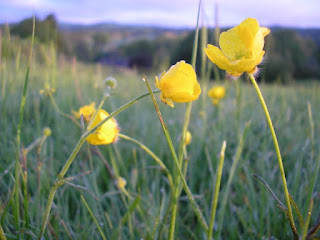A child's learning involves being able to identify things. (Spoon. Ball.) And it involves being able to recognize recurring patterns. (That ball and spoon both go down when pushed off the edge of the table.) However, that wonderful human ability to identify things and discern recurring patterns has a drawback: It easily results in our simplified classifying and stereotyping of people.
Not only do we easily group people by race or ethnic background, we also classify historical personages by what they are most famous for. For example, one person becomes "a scientist" in the historical record, even though that "scientist" might have most enjoyed playing with their children. Or, another famous person becomes "a singer," even though that "singer" might have most enjoyed tinkering with old clocks.
One historical figure in early North American history has become indelibly linked to the state of Pennsylvania: William Penn, whose last name is the first part of that state's name. There is a bit of irony here, because even after getting the king of England's permission to establish a colony in the "New World," William Penn spent more years in Germany and England than in the future U.S. Because most education in the U.S. today is secularized, American-history textbooks classify the man as a political leader. Books on the history of Christianity, in contrast, classify him as a leader of a religious movement, the Quakers. As a result of such classifications, neither type of textbook is likely to tell the reader about Penn's thoughts and writings about Nature.William Penn's enjoyment of Nature is demonstrated by the name he had preferred for the colony he founded in 1691: "Sylvania," meaning "forest" in Latin. It is from the same Latin root for "Sylvania" that we get the little-used English word "sylvan," meaning related to wooded areas. (It was King Charles II who stuck "Penn" on the front end of the colony's name in honor of William Penn's father, an admiral.)
Even though on national holidays such as the Fourth of July, patriotic Pennsylvanians might focus only on William Penn's interest in founding a colony, that man's appreciation of Nature is revealed in words like these that flowed from his pen:
"The world is certainly a great and stately volume of natural things,
and may be styled the hieroglyphics of a better one,
But, alas, how very few leaves of it do we seriously turn over!
... The country is both the philosopher’s garden and his library,
in which he reads and contemplates
The power, wisdom and goodness of God."
With those words in Penn's book "Some Fruits of Solitude," he is sharing in a long tradition within Christianity of viewing the natural world as a revelatory "Book of Nature" that supplements and complements another book, the Bible.
Artists' portraits of Penn and his fellow 17th and 18th-century Quakers frequently portray them wearing their distinctive flat-topped black hats as an aid to picture-viewers in identifying them as being Quakers. (The Quaker Oats Company has stated that one such portrait on their trademarked cereal boxes is not William Penn, as they once claimed, but is just a generic Quaker.) Those flat-topped hats with two projections to the side look out of fashion today.
But perhaps not out of fashion might be William Penn's additional thought that,"It would go a long way to caution and direct people in their use of the world" if "they were better studied" in the natural world as revealing the Divine. He continues:
"For how could man find the confidence to abuse it,
While they should see the Great Creator stare them in the face,
in all and every part thereof?"
~ ~ ~
(Is there any way that you feel you "see the Great Creator" in Nature?)
(Both quotations are from William Penn's book "Some Fruits of Solitude" [1682, 1693], capitalization modernized.)

